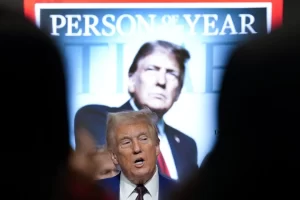Paula Abdul and Nigel Lythgoe Settle Sexual Assault Lawsuit: Legal Dispute Resolved
In a significant turn of events, former “American Idol” judge Paula Abdul and renowned TV producer Nigel Lythgoe have successfully settled a long-running sexual assault lawsuit that had been the subject of media attention. The two television personalities reached a resolution, effectively bringing an end to the contentious legal battle. This settlement, which comes after months of tense negotiations, marks a key moment in both Abdul and Lythgoe’s careers, particularly as they continue to navigate the public fallout from the allegations.
The sexual assault lawsuit was filed against both Abdul and Lythgoe by an anonymous plaintiff who accused them of inappropriate behavior in the workplace. The plaintiff alleged that the events occurred while Abdul and Lythgoe were working on various entertainment projects in the 2000s. The lawsuit brought to light several disturbing claims that painted a picture of a toxic and hostile work environment, raising questions about the treatment of employees within the entertainment industry.
The Allegations and Legal Battle
The plaintiff’s legal team initially argued that Abdul and Lythgoe’s actions were not only harmful but also left lasting emotional and psychological effects on their client. The accusations, which were kept largely private at the outset, were later detailed in public court filings. Abdul and Lythgoe, however, consistently denied any wrongdoing, maintaining that the accusations were false and baseless.
For months, the lawsuit remained in the legal spotlight, with the media covering every twist and turn in the case. While many were drawn to the details of the accusations, both parties also focused on defending their reputations and career legacies. As high-profile figures in the entertainment industry, the lawsuit quickly became not just a legal matter but a public relations challenge as well.
Settlement Brings Closure
After months of litigation, both Abdul and Lythgoe have agreed to settle the case, avoiding a prolonged court battle. While the terms of the settlement are confidential, reports suggest that both parties have come to a mutual agreement to resolve the matter outside of court. The settlement allows for the lawsuit to be dismissed without an official judgment on the allegations.
The resolution of this lawsuit is seen as a significant moment in the ongoing conversation about sexual harassment and misconduct in the entertainment industry. It also sheds light on how both individuals in the public eye and private workers are navigating the complexities of legal challenges that arise in such high-stakes industries.
For Paula Abdul, a well-known figure in the entertainment world for her work as a dancer, singer, and television personality, the settlement brings some much-needed relief after the stress of the legal process. Similarly, Nigel Lythgoe, who made his name as a producer of hit TV shows like “So You Think You Can Dance” and “American Idol,” can now begin the process of moving past the controversy.
A Reflection on Industry Standards
The case and its settlement underscore the importance of maintaining a safe and respectful working environment for all employees. The allegations brought to light issues of power dynamics, respect, and the treatment of employees within entertainment productions. As the industry continues to reckon with the #MeToo movement and its implications, it is clear that the standards for acceptable behavior on set and behind the scenes are evolving.
While the settlement has allowed both Abdul and Lythgoe to avoid a lengthy trial, it also serves as a reminder of the importance of accountability and transparency in the workplace. As the entertainment world adapts to changing norms and expectations, this case highlights how the legal system is used to resolve disputes and ensure justice for those involved.
Conclusion: A New Chapter for Paula Abdul and Nigel Lythgoe
With the settlement now complete, Paula Abdul and Nigel Lythgoe can both look forward to moving forward with their careers, unburdened by the weight of ongoing litigation. While the lawsuit may have tarnished their public images temporarily, the resolution offers both of them a path to rebuild their reputations and continue to contribute to the entertainment industry.
The settlement also provides a sense of closure to the plaintiff, who can now begin the process of healing and moving on from the experience. Though the terms of the settlement remain undisclosed, the hope is that this resolution serves as a positive example for how such matters can be handled in the future, allowing for accountability, privacy, and justice for all involved.

